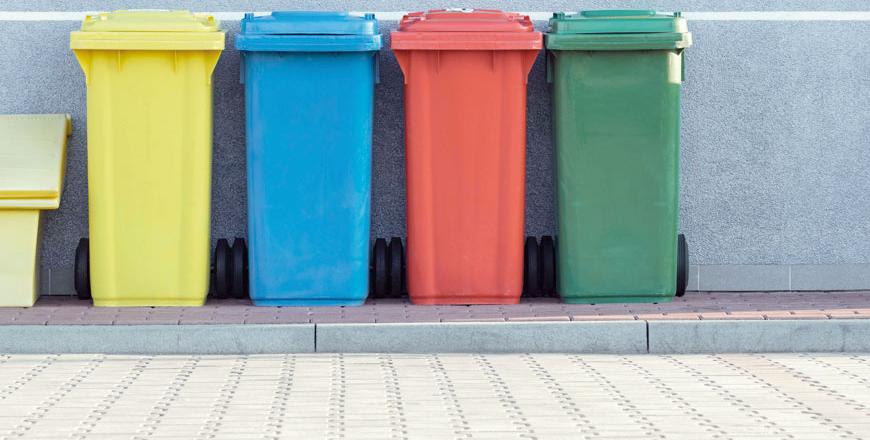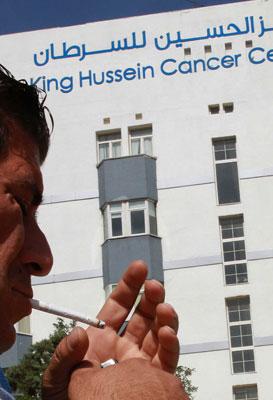You are here
Preventive measures necessary to stop cancer spike, say experts
By Rayya Al Muheisen - Nov 13,2022 - Last updated at Nov 13,2022
AMMAN — Over 9,000 new cases of cancer were recorded in Jordan this year, leading experts to suggest that investing in core prevention strategies is crucial to the Kingdom’s fight to eradicate the disease.
Raha Omar, who lost her brother to cancer, encourages everyone to adopt a healthy lifestyle, quit smoking and reduce plastic consumption at any cost.
“My brother started smoking when he was 16 years old, and he passed away from a battle with lung cancer, leaving his four children orphans,” Omar told The Jordan Times.
Omar added that when his brother finally went to the doctor for a check-up, the cancer had already spread in his lungs.
“He was stage four advanced; it was a hopeless case. Doctor gave him a six-month life expectancy, and indeed, he passed away five months after his diagnosis,” Omar said.
Director General of the King Hussein Cancer Centre (KHCC) Asem Mansour announced at a research conference on Saturday that the total number of new cancer cases recorded in Jordan reached 9,248 cases, including 7,094 cases among Jordanians, as reported by the Jordan News Agency, Petra.
At the same conference, Mansour said that cancer rates in the Kingdom stood at 99.4 per every 100,000 persons, with a level of 107.4 for females and 91.7 per cent for males.
The five most common types of cancer among Jordanian males were colorectal cancer at 13 per cent, lung cancer at 10.9 per cent, bladder cancer at 9.2 per cent, and prostate cancer at 7.6 per cent, according to Petra.
“Breast cancer is the most common type of cancer among female Jordanians, standing at 38.9 per cent,” Petra added.
“The high prevalence of smoking is associated with high incidence of lung cancer, which is the leading cause of cancer death among males globally,” according to the King Hussein Cancer Foundation (KHCF) Facebook page, which added that 80 per cent of Jordan’s recorded cases of lung cancer are among smokers.
KHCF added that 42 per cent of people living in Jordan smoke, meaning that Jordan has one of the world’s highest rates of smoking worldwide.
“80 per cent of Jordanians are subject to secondhand smoke,” KHCF added.
Being subject to secondhand smoke increases the risk of developing lung cancer. Furthermore, females are more subject to secondhand smoke than males, according to KHCF.
Amr Shafiq, a professor of clinical oncology said that Jordan needs to invest in core prevention strategies to fight cancer.
“The highest relative global increase in cancer cases is occurring in the Arab world due to multiple factors, including changes in cancer risk exposure and improved cancer diagnostic procedures,” Shafiq said during a webinar attended by The Jordan Times.
Meanwhile, environmentalist Manal Sabhi stated that a high intake of toxins, such as plastic and hormones, can also cause cancer.
“People consume large amounts of plastic, which is eventually digested into our systems,” Sabhi told The Jordan Times.
Sabhi said that the main habit that can lead to cancer is smoking, through traditional cigarettes, shisha or e-cigarettes.
“I strongly urge the authorities to enforce the law that prohibits smoking in public areas, which will reduce the exposure to second-hand smoke,” she added.
Amal Mdanat, an environmentalist, stated that the rise in cancer, lung diseases and skin problems can be attributed to the toxins that the population encounters on daily basis.
“Microplastics have been found in living human beings’ lungs,” she said.
Mdanat noted that adopting a healthy lifestyle and changing our consumption patterns will not prevent us from developing cancer. However, she said, it will reduce the probability of developing it.
Despite several attempts by The Jordan Times to contact KHCF, they were unavailable to comment.
Related Articles
AMMAN — Some 40 per cent of all cancer types can be prevented through adopting a healthy lifestyle, Director General of the King Hussein Can
AMMAN — Changing the mindset of younger children and replacing the habit of excessive consumption to reduce, reuse and recycle are vital in
AMMAN — Yazeed was 12 years old when he had his first shisha, an instrument for vaporising and smoking flavoured tobacco.













